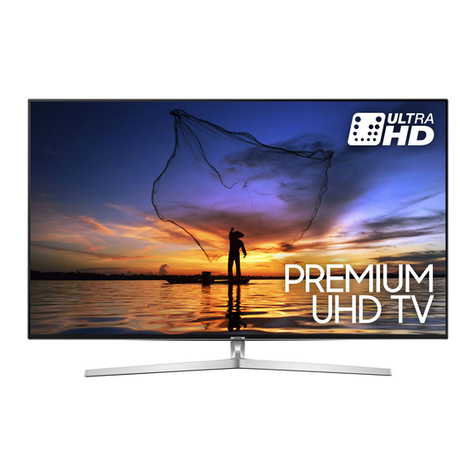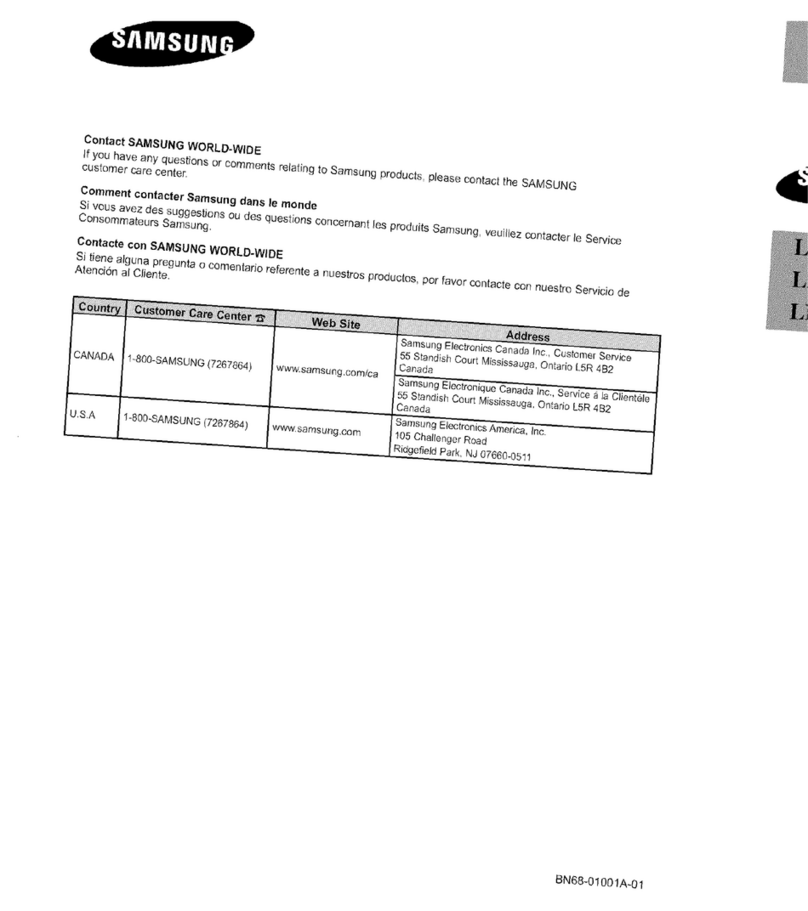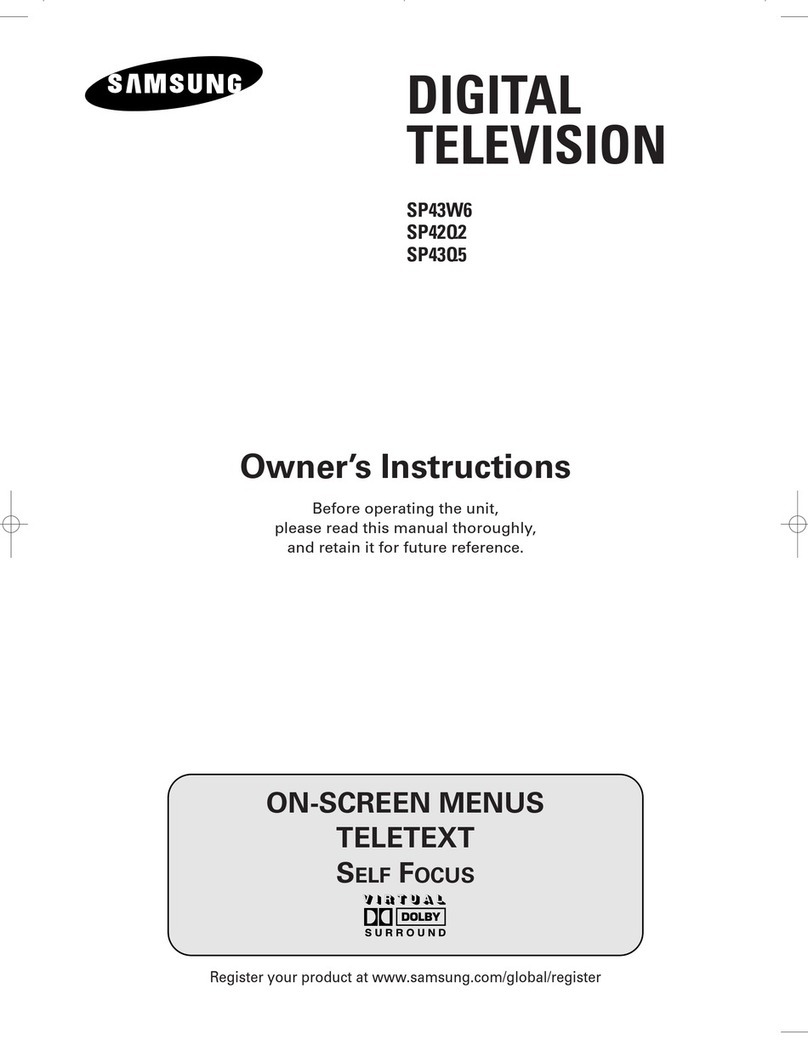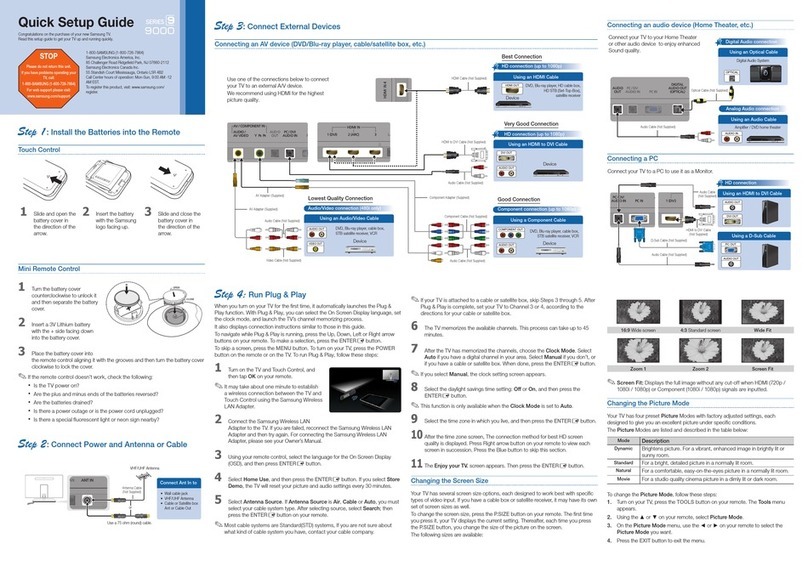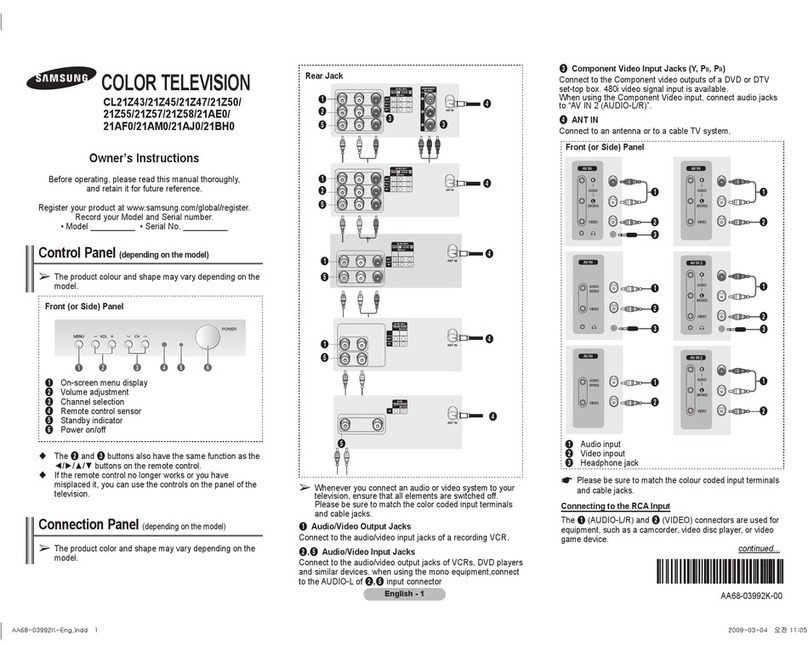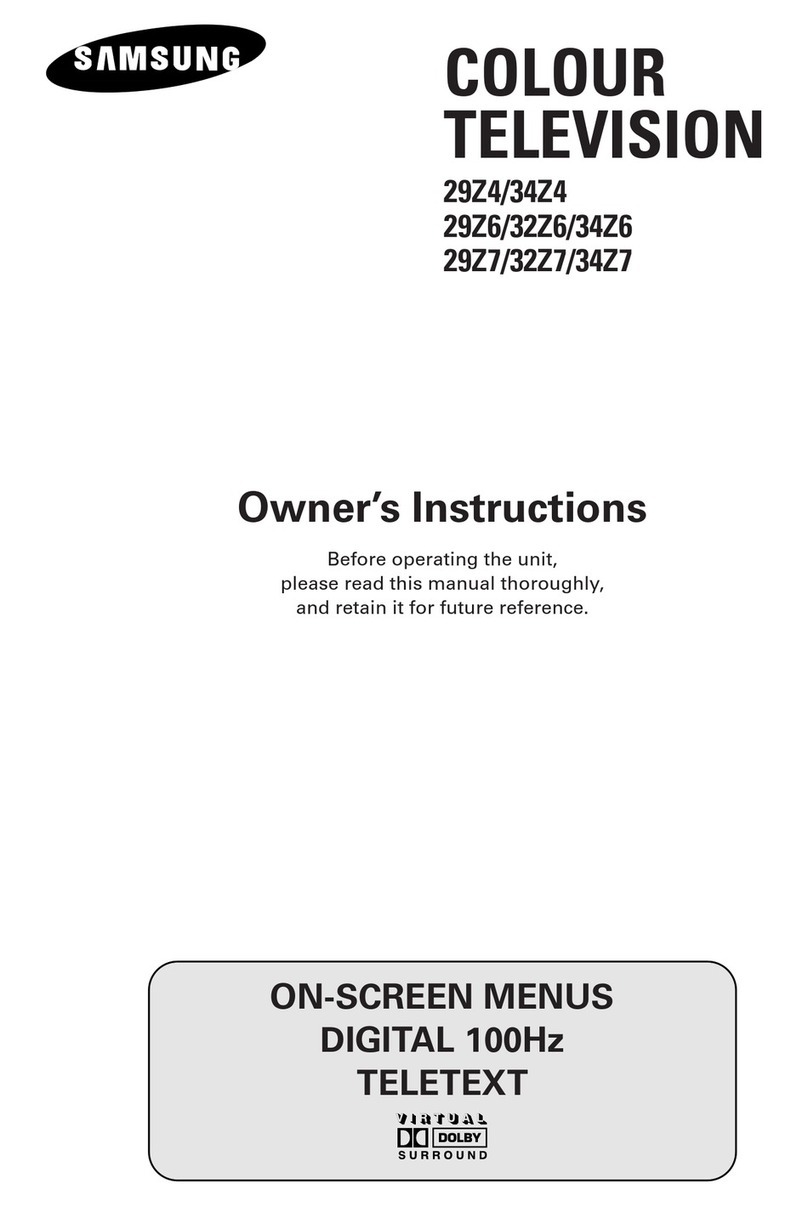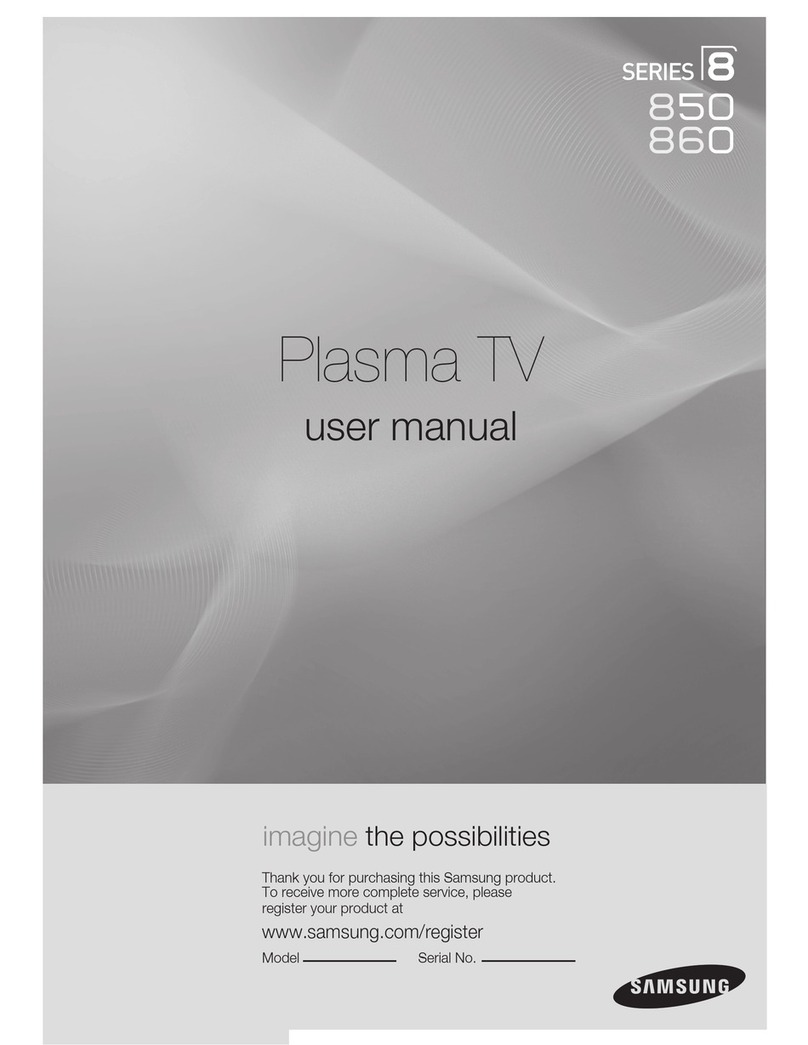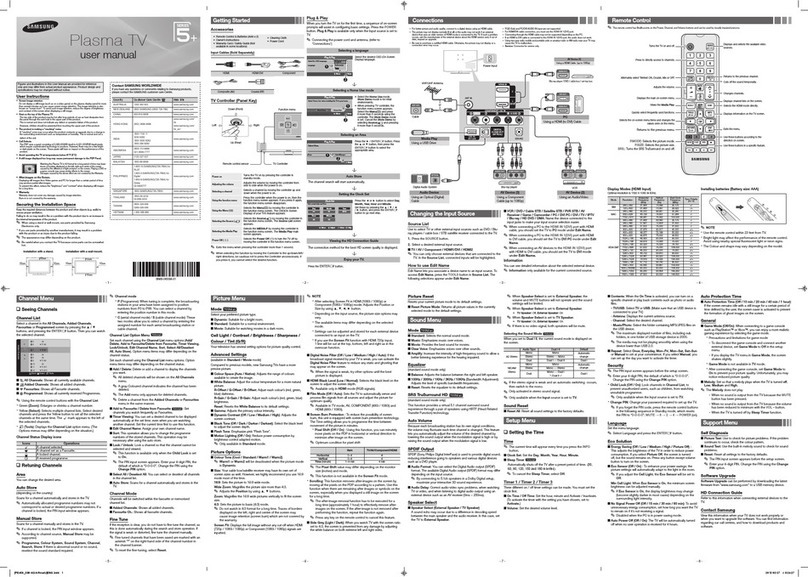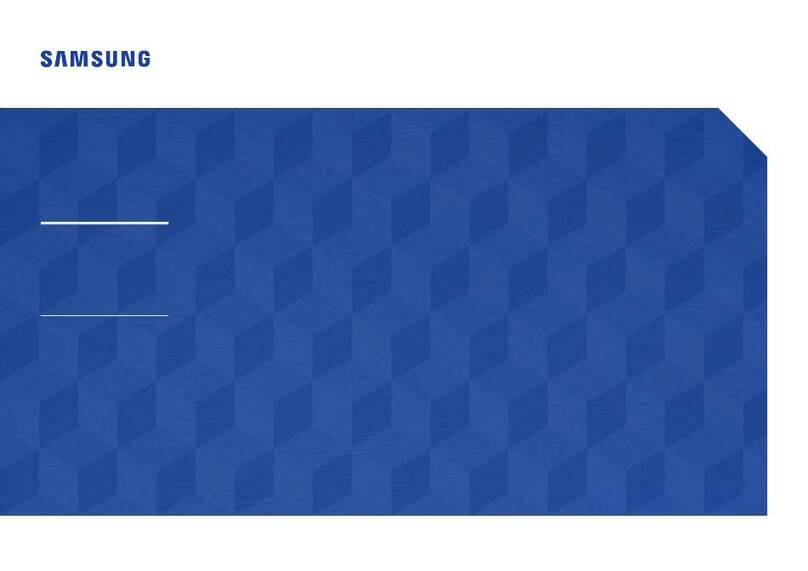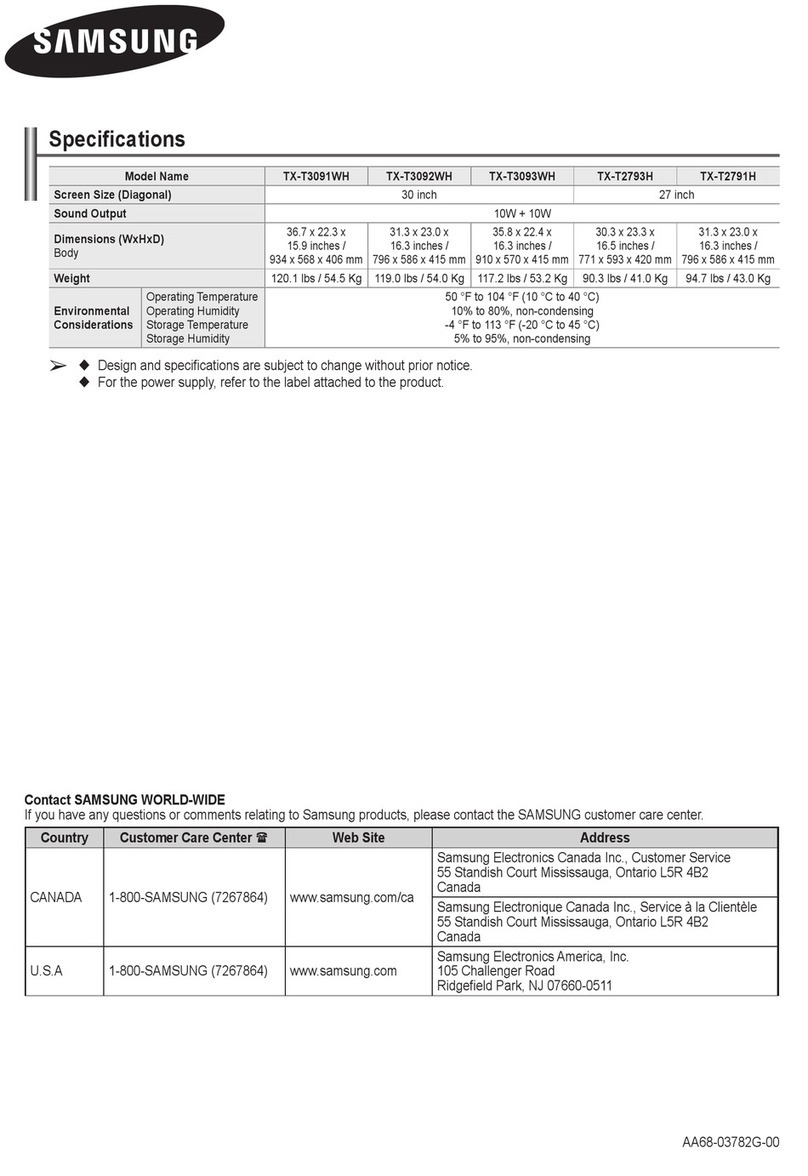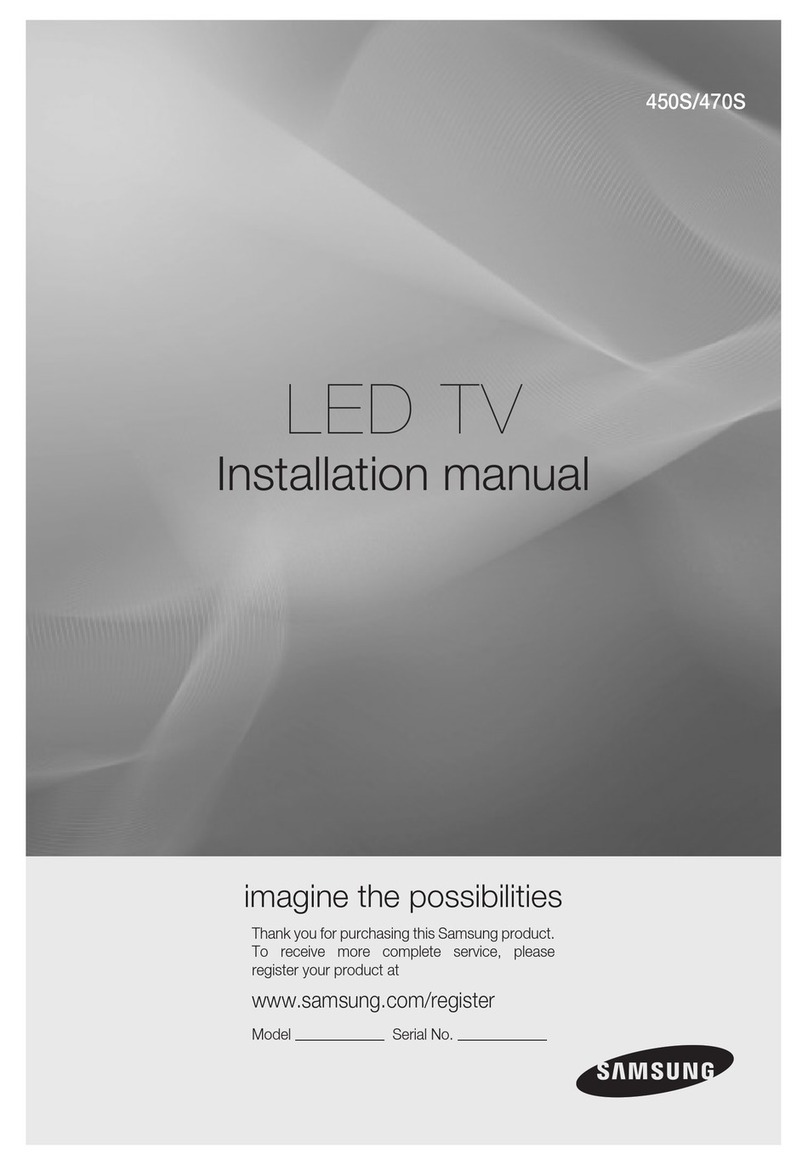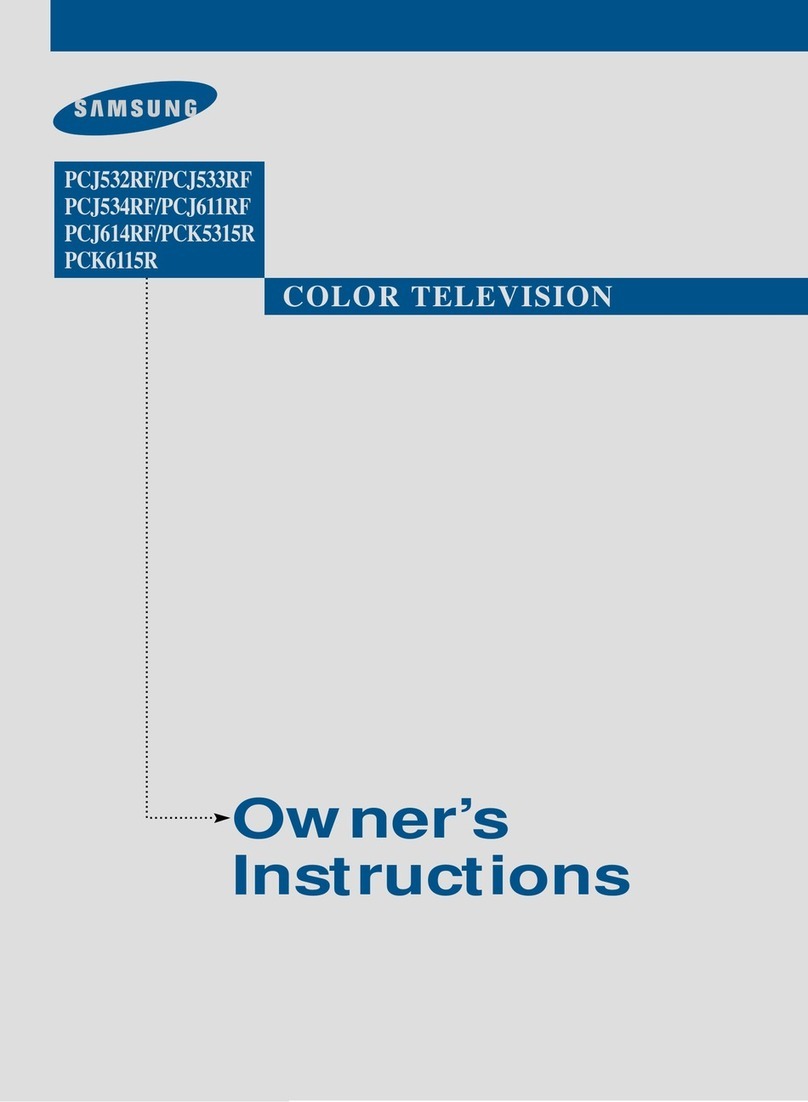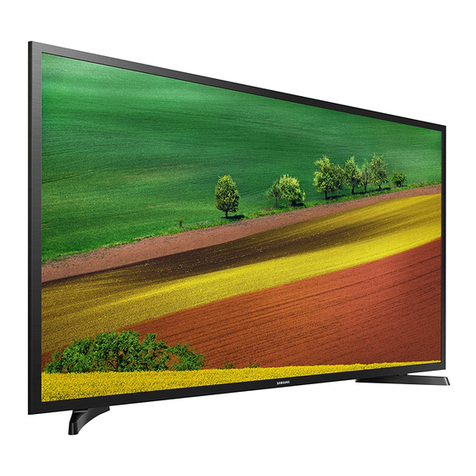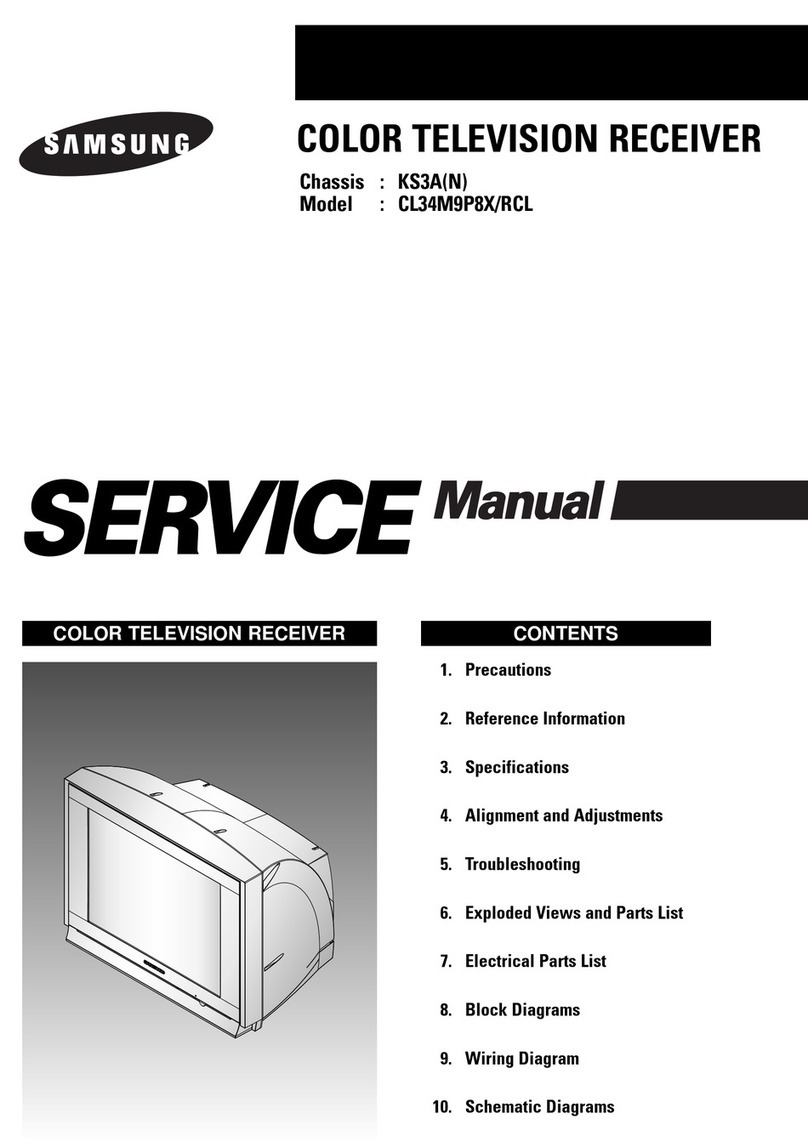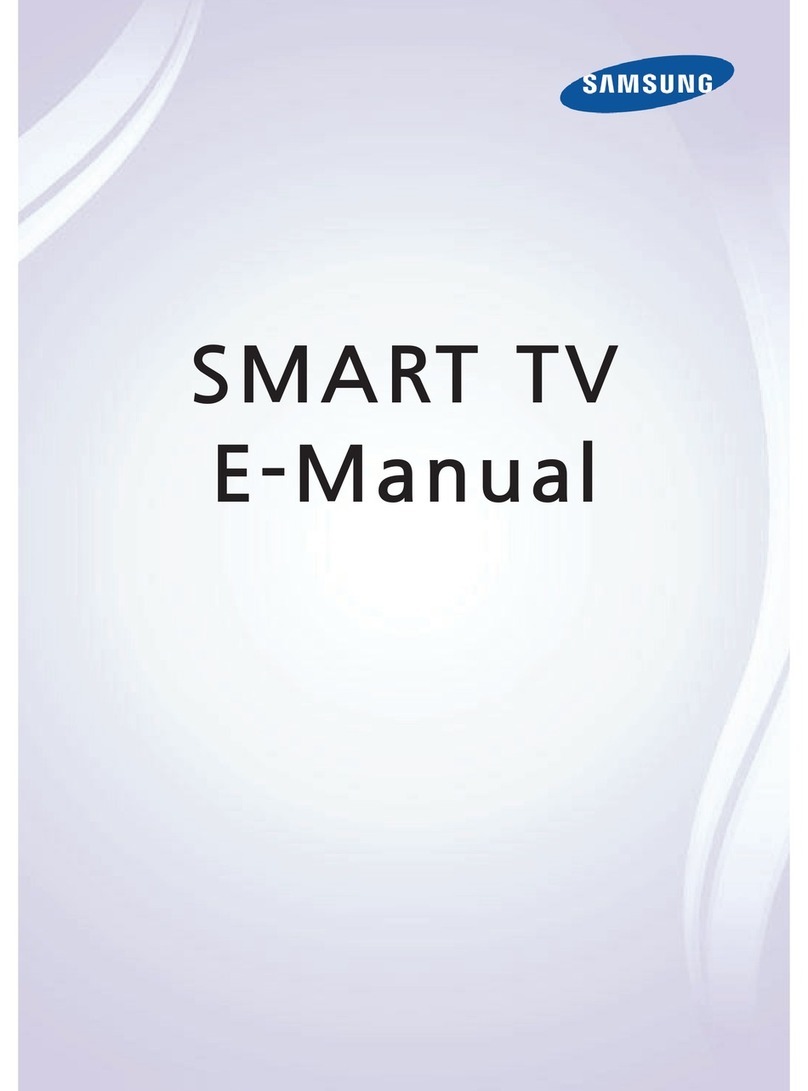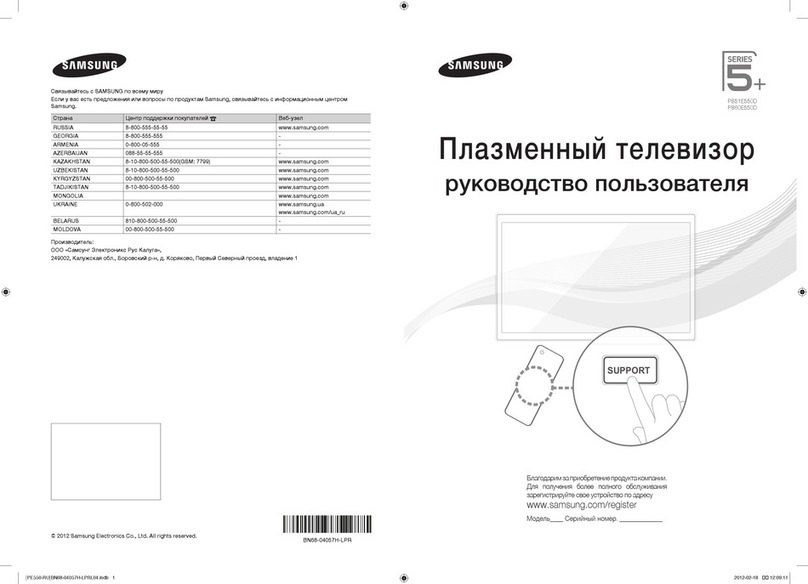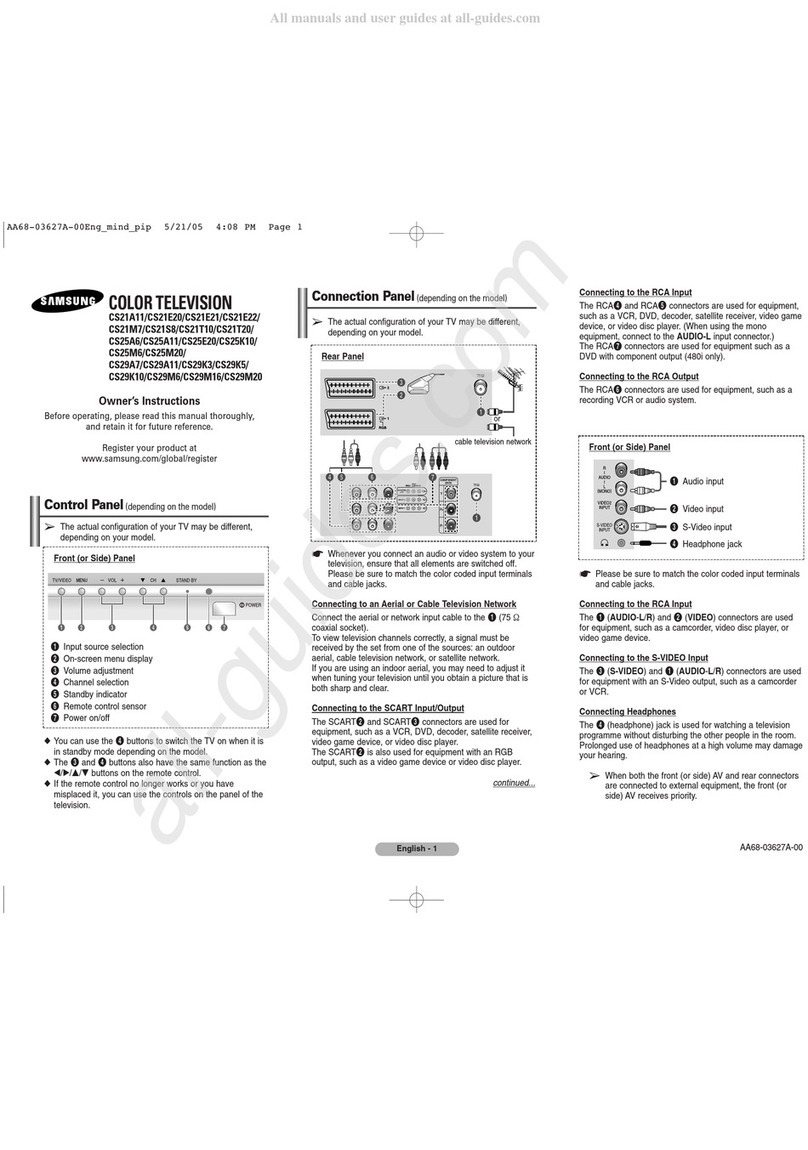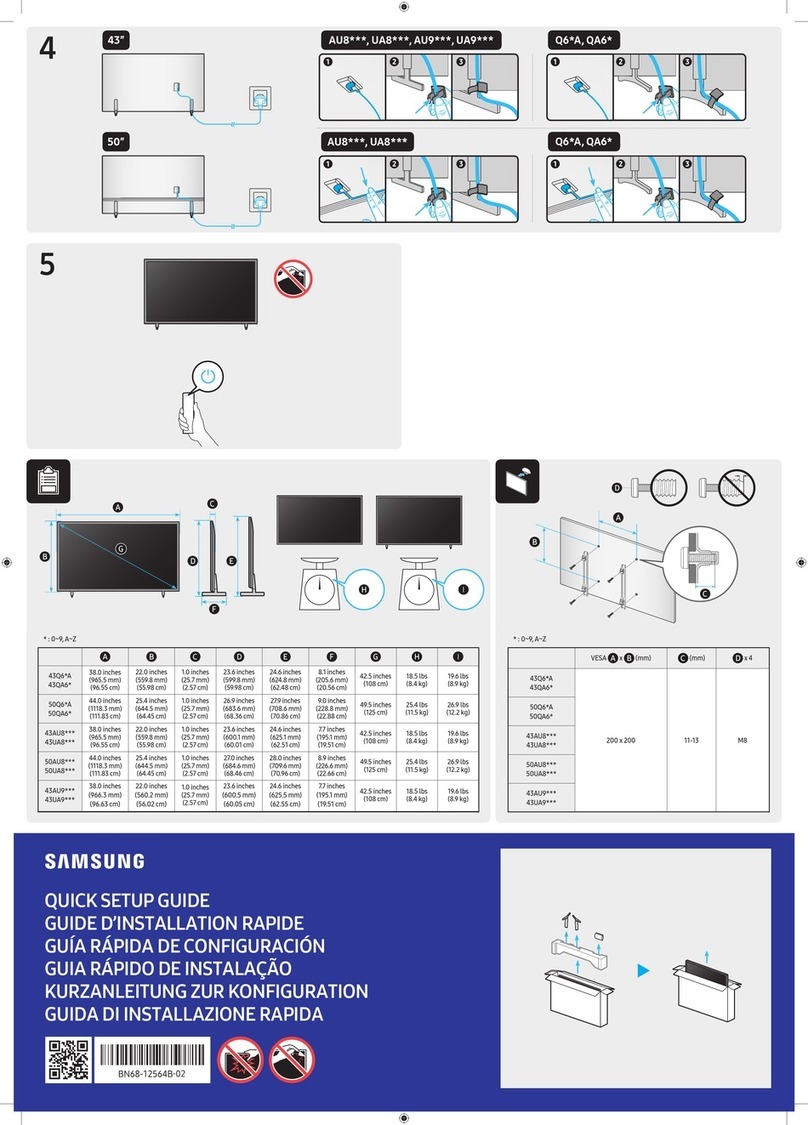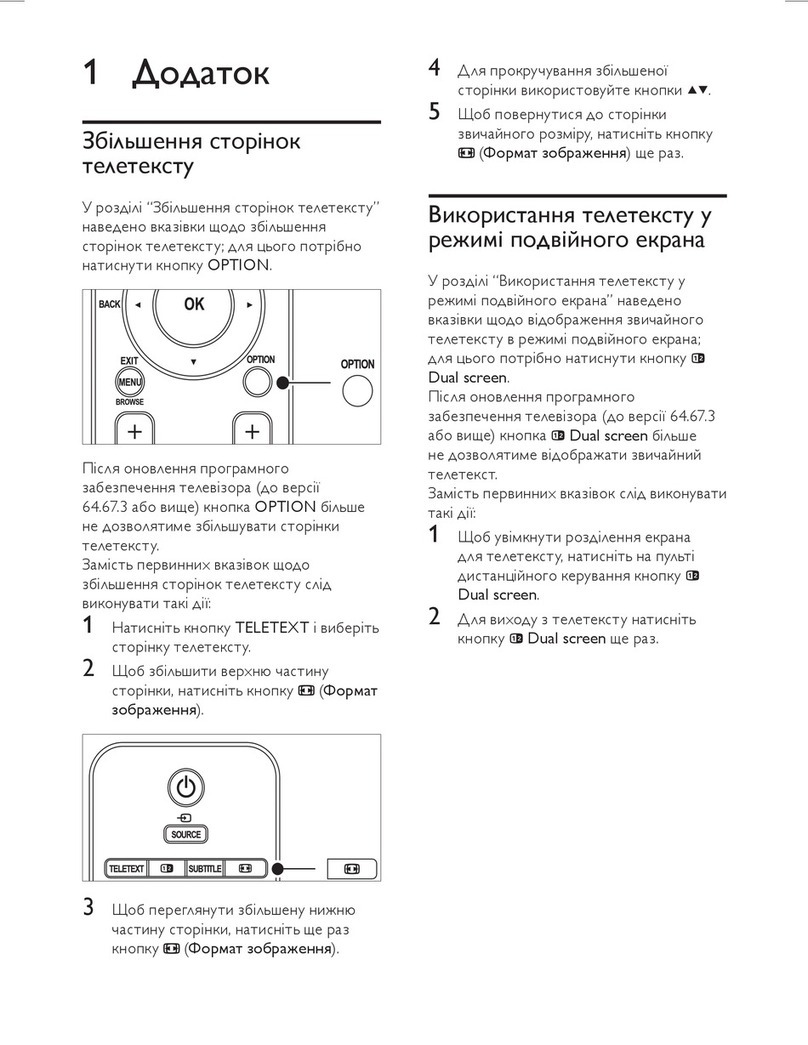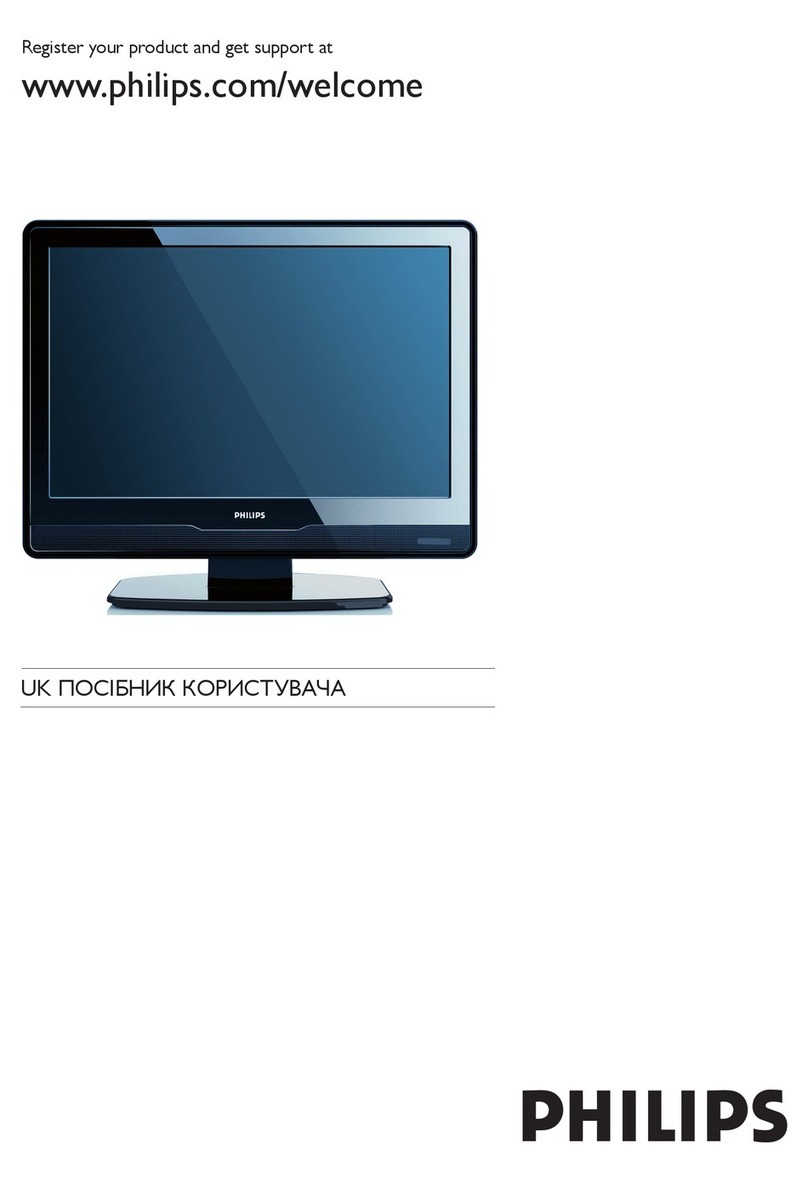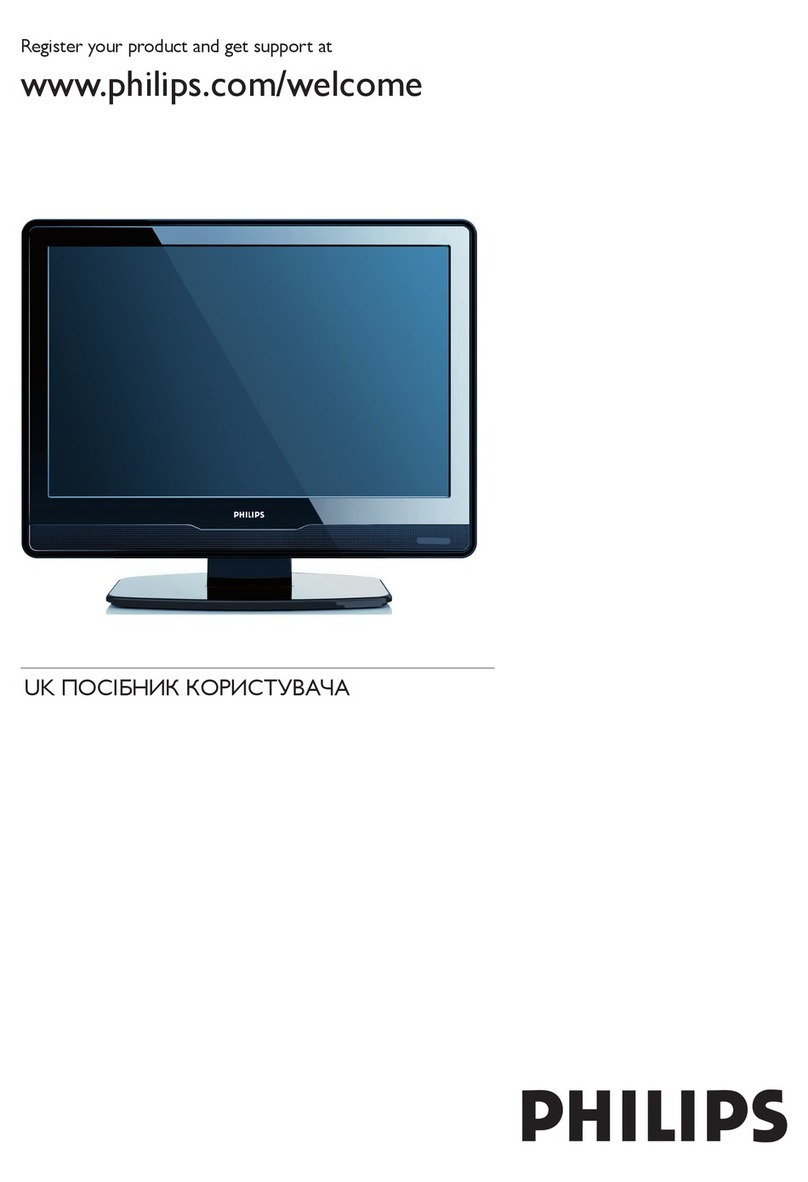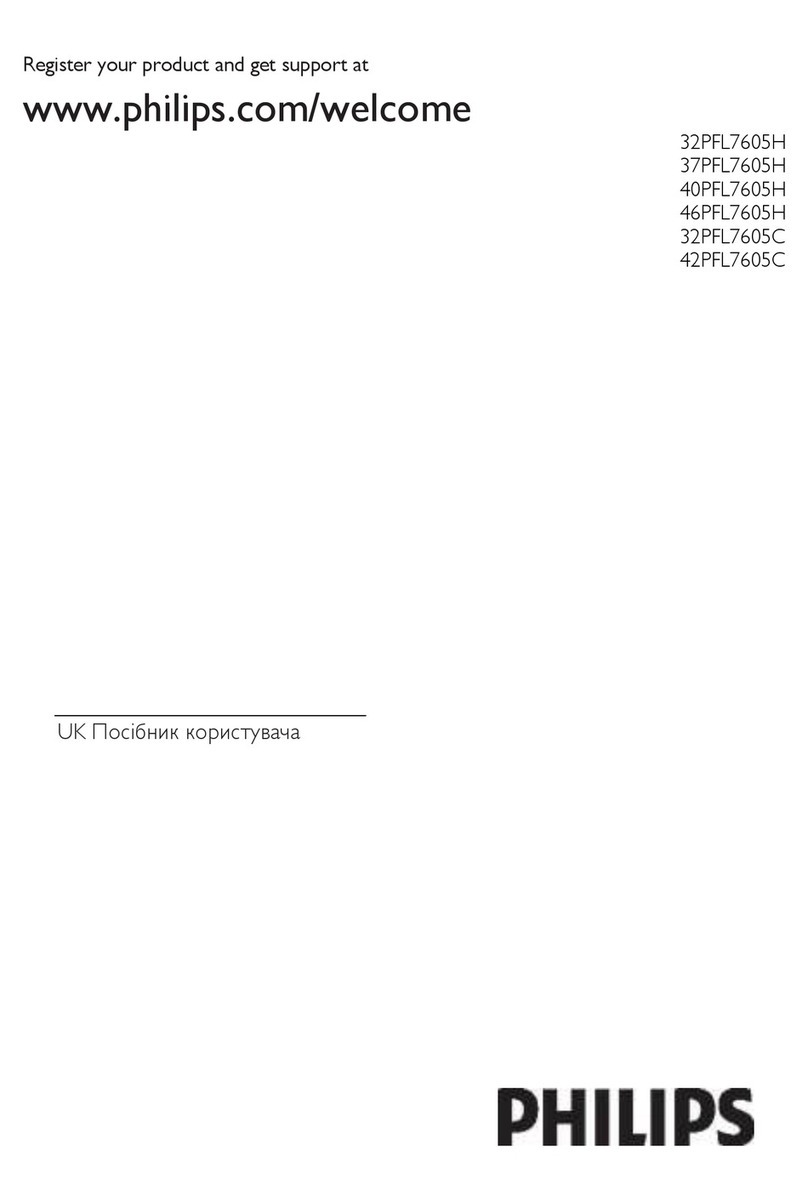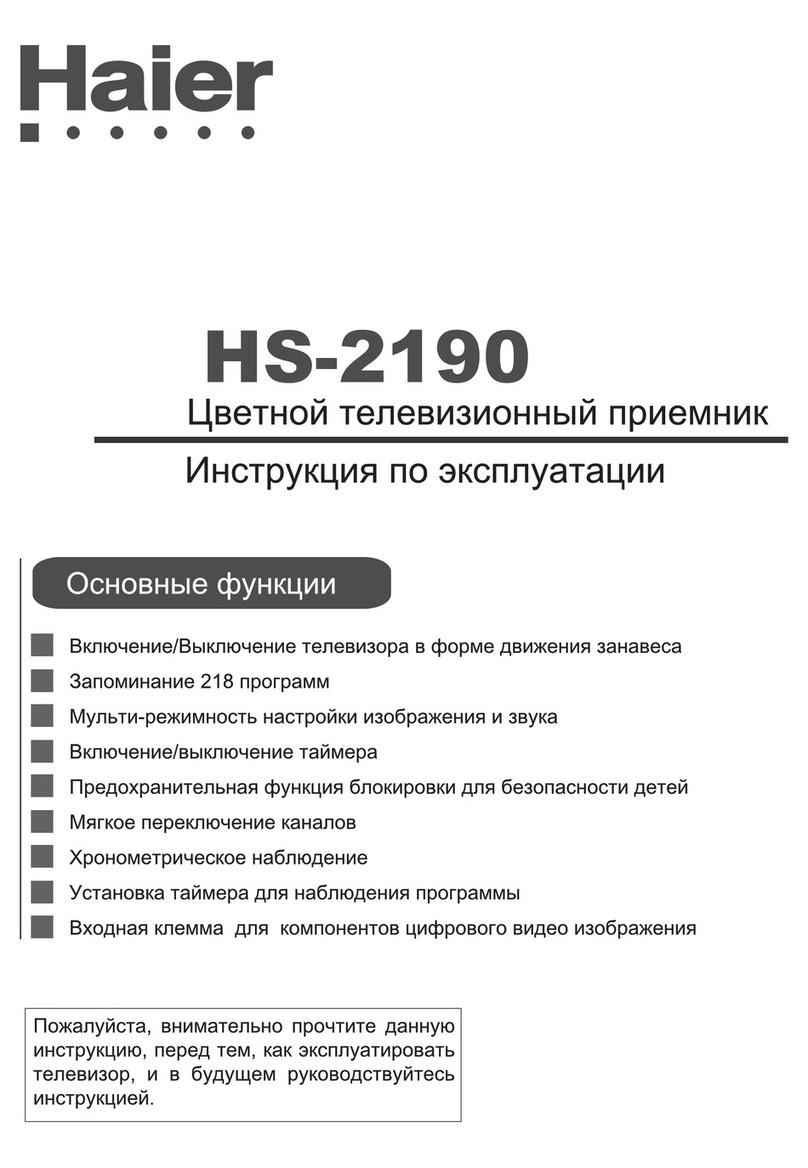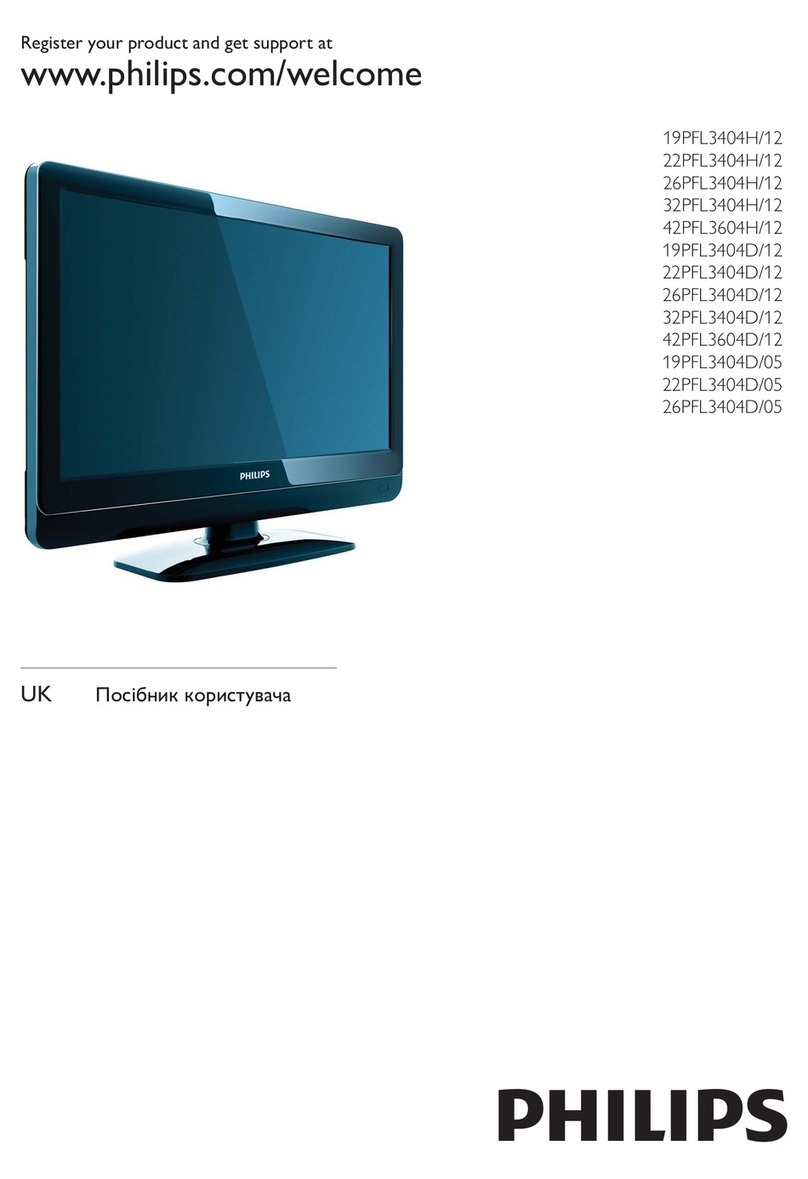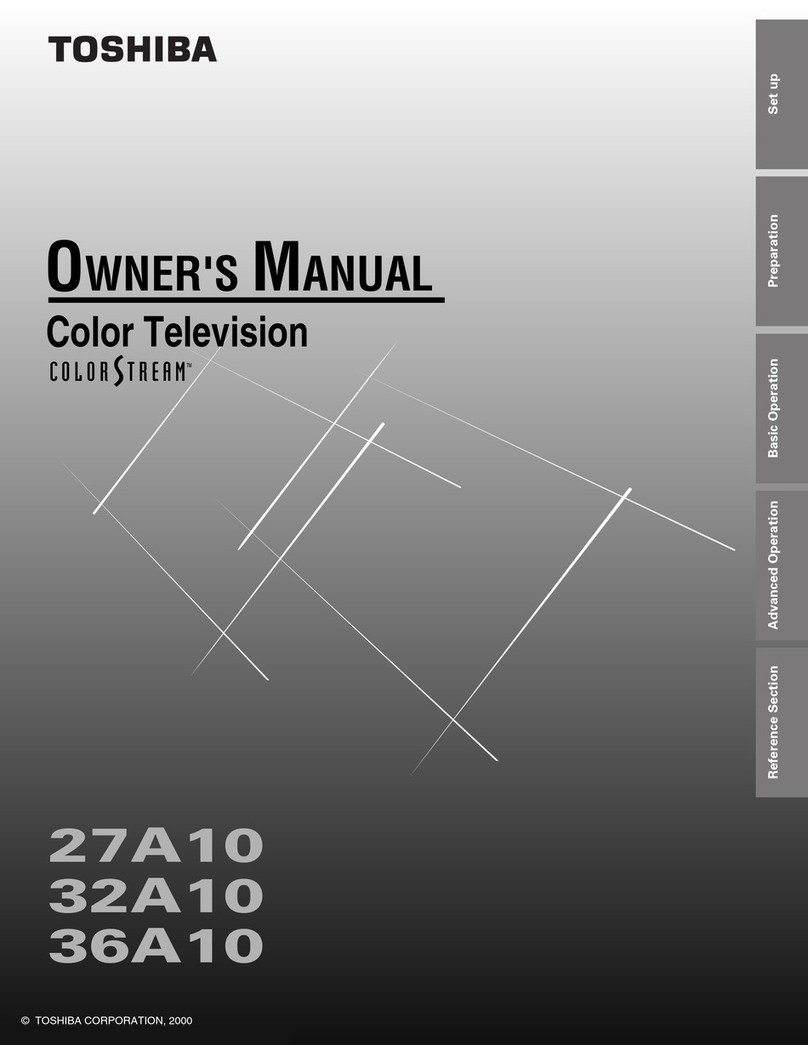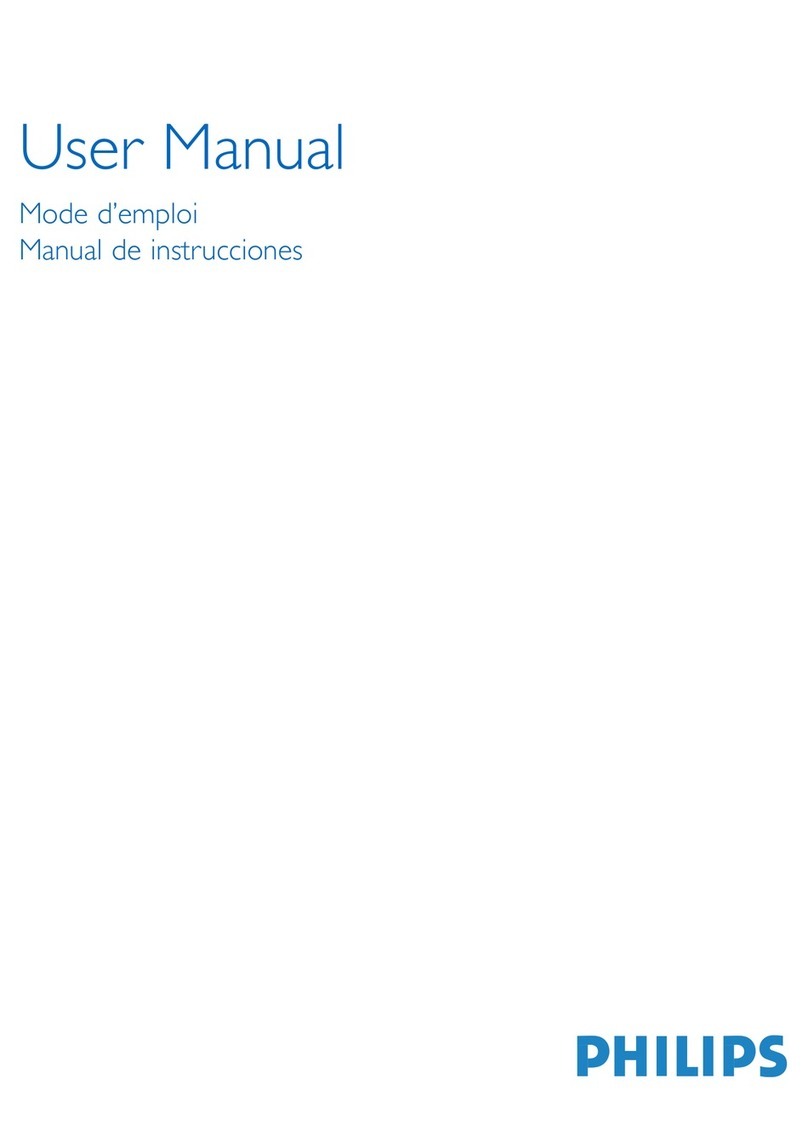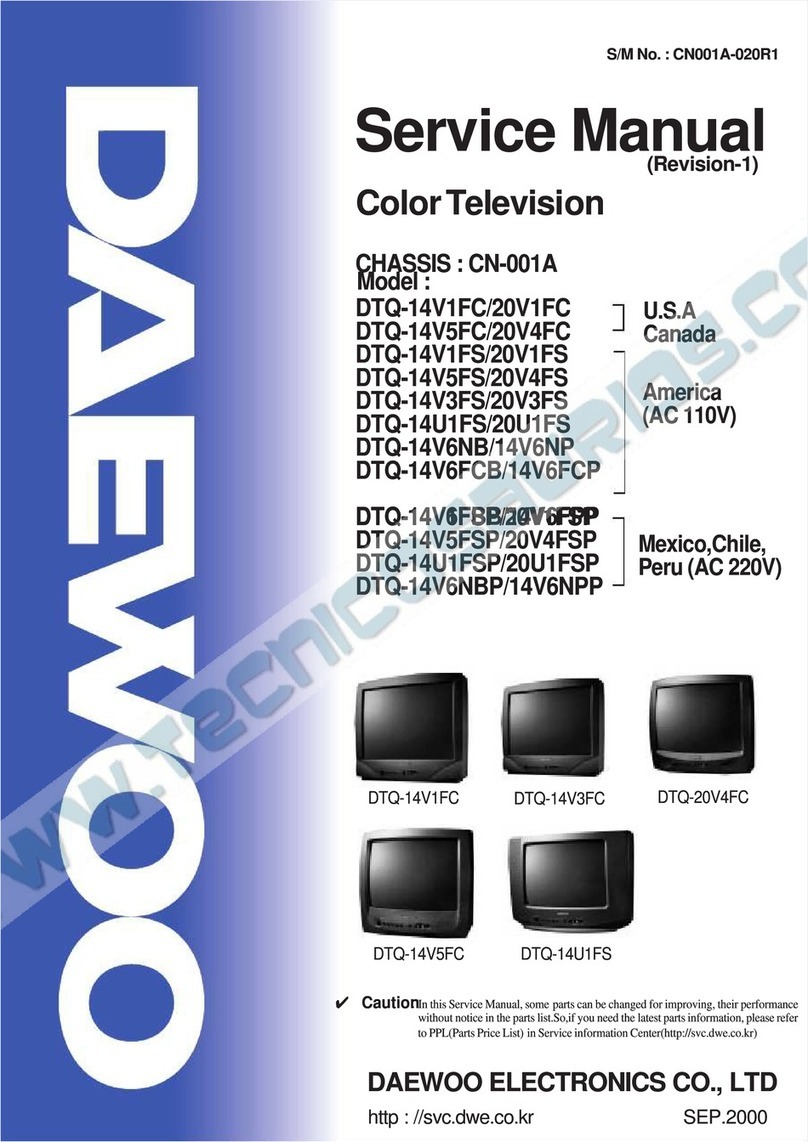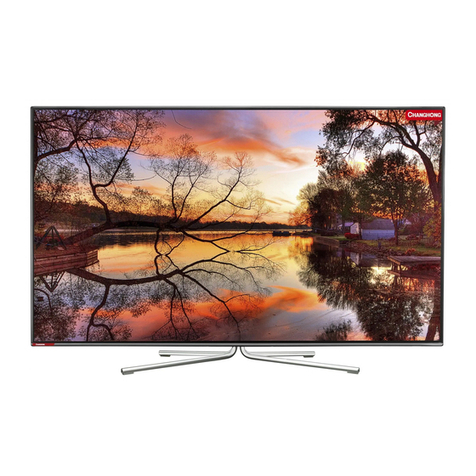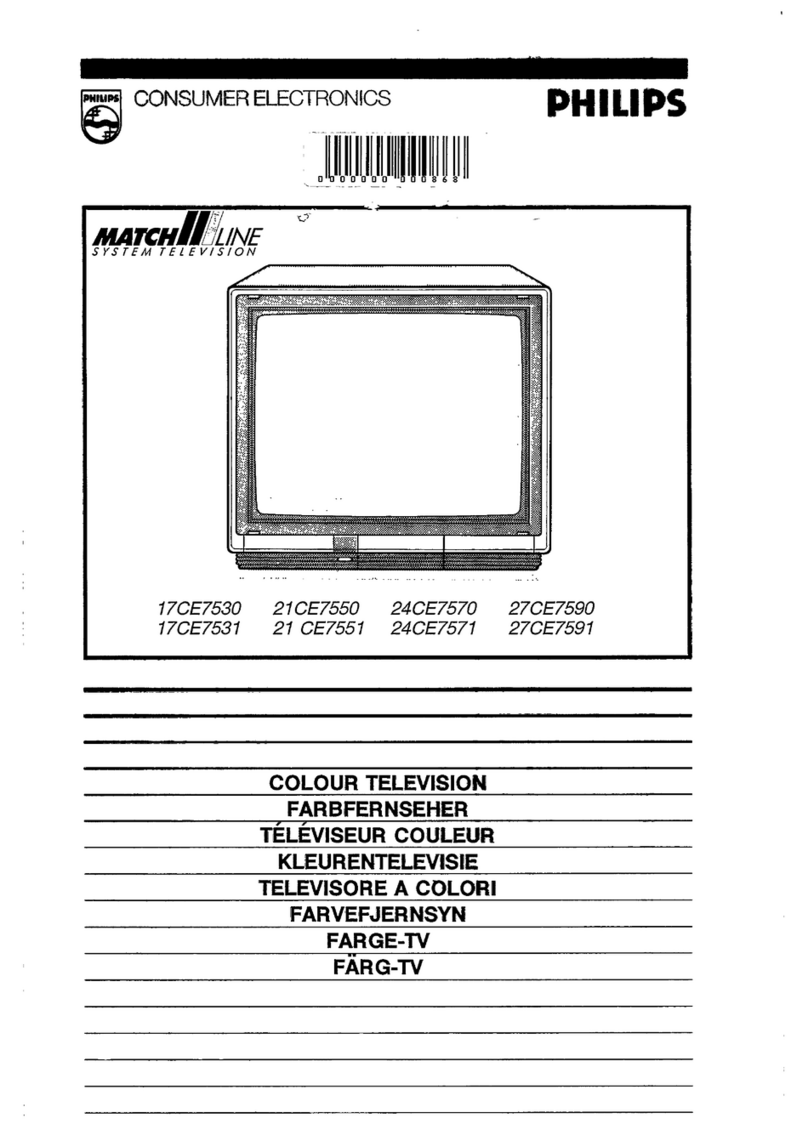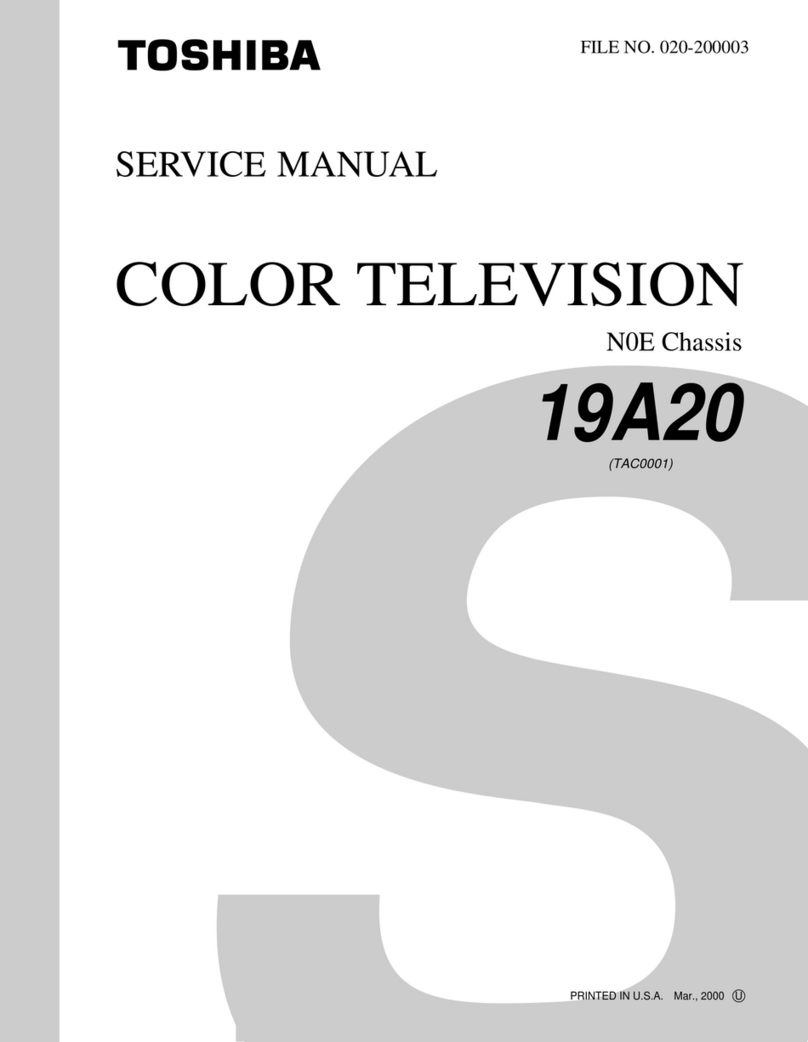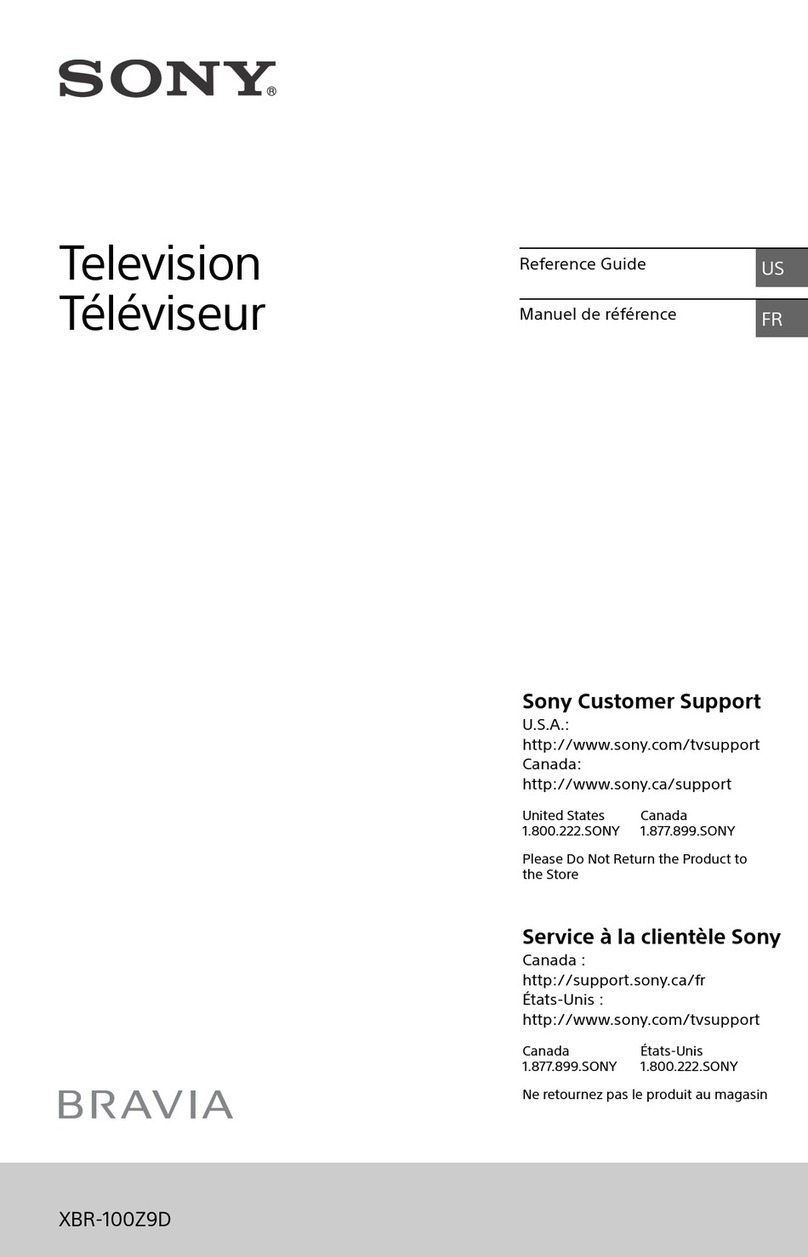•Protect the power cord. Power supply cords should be routed so that they will not be walked
on or pinched by items placed on or against them. Pay particular attention to cord placement
at plugs, convenience receptacles, and at the point where they exit from the unit.
• Unplug the TV receiver from the wall octtlet and disconnect the antenna or cable system dur-
ing a lightning stoml or when left unattended and unused for long penods of time. This will
prevent damage to the unit due to lightmng and powe>line surges.
• An outside antenna system should not be placed in the vicimty of over*head power lines or
other electric light or power circuits or where it can fall into such power lines or circuits.
Avoid overhead power lines: When installing an omside antenna system, be extremely careful
to keep from touching the power lines or circuits. Contact with such lines might be fatal.
• Do not overload the wall outlet or extension cords. Overloading can resuh in fire or electric
shock.
•Do not insert foreign ol_jects through opemngs in the unit, as they nmy touch dangerous
voltages or cause danmge. Never spill liquid of any kind on the TV receiver.
• Ground outdoor antennas. If an outside antenna or cable
system is connected to the TV receiver, be sure the
antenna or cable system is grounded so as to provide
some protection against voltage sut*gesand bmh-up static
charges. Read infommtion with respect to proper
grotm&ng of the nmst and supporting structure,
groun&ng of the lead-in wire to an antenna
discharge unit, size of groun&ng conductors, location of
antenna-discharge unit, connection to grounding
electrodes, and requirements for the groun&ng electrode.
EXAMPLE OF
ANTENNA GROUNDING
• Do not attempt to sel%ce the TV receiver yourself. Refer all servicing to qualified service
personnel. Unplug the unit from the wall octtlet and refer ser,_king to qualified servke
personnel under the following conditions:
- When the powe>supply cord or plug is dan*aged
- If liquid has been spilled on the unit or if Ol#lectshave fallen into the TV
- If the TV receiver has been exposed to rain or water
- If the TV receiver does not operate nornmlly by following the operating instructions
- If the TV receiver has been dropped or the cabinet has been danmged
- When the TV receiver exhibits a distinct degradation in perfommnce
•If you nmke acljustments yourself, acljust only those controls that are covered by the operat-
ing instructions. Acljusting other controls nmy resuh in danmge and will often require exten-
sive work by a qualified technician to restore the TV receiver to nommfi
• When replacement parts are required, be sure the service technician uses replacement parts
specified by the manufacturer or those that have the same characteristics as the onginal part.
Unauthonzed substitutions nmy resuh in additional danmge to the unit.
• Upon completion of any service or repairs to this TV receiver, ask the ser,<ice technician to
perform safety checks to detemfine that the TV receiver is in a safe operating condition.
This device complies with part 15 of the FCC Rules. Operation is subject to the
following two conditions:
(1) This device may not cause harmful interference, and
(2) This device must accept any interference that may cause undesired operation.
This television receiver provides display of television closed captioning in accordance
with §15.119 of the FCC rules.
4
